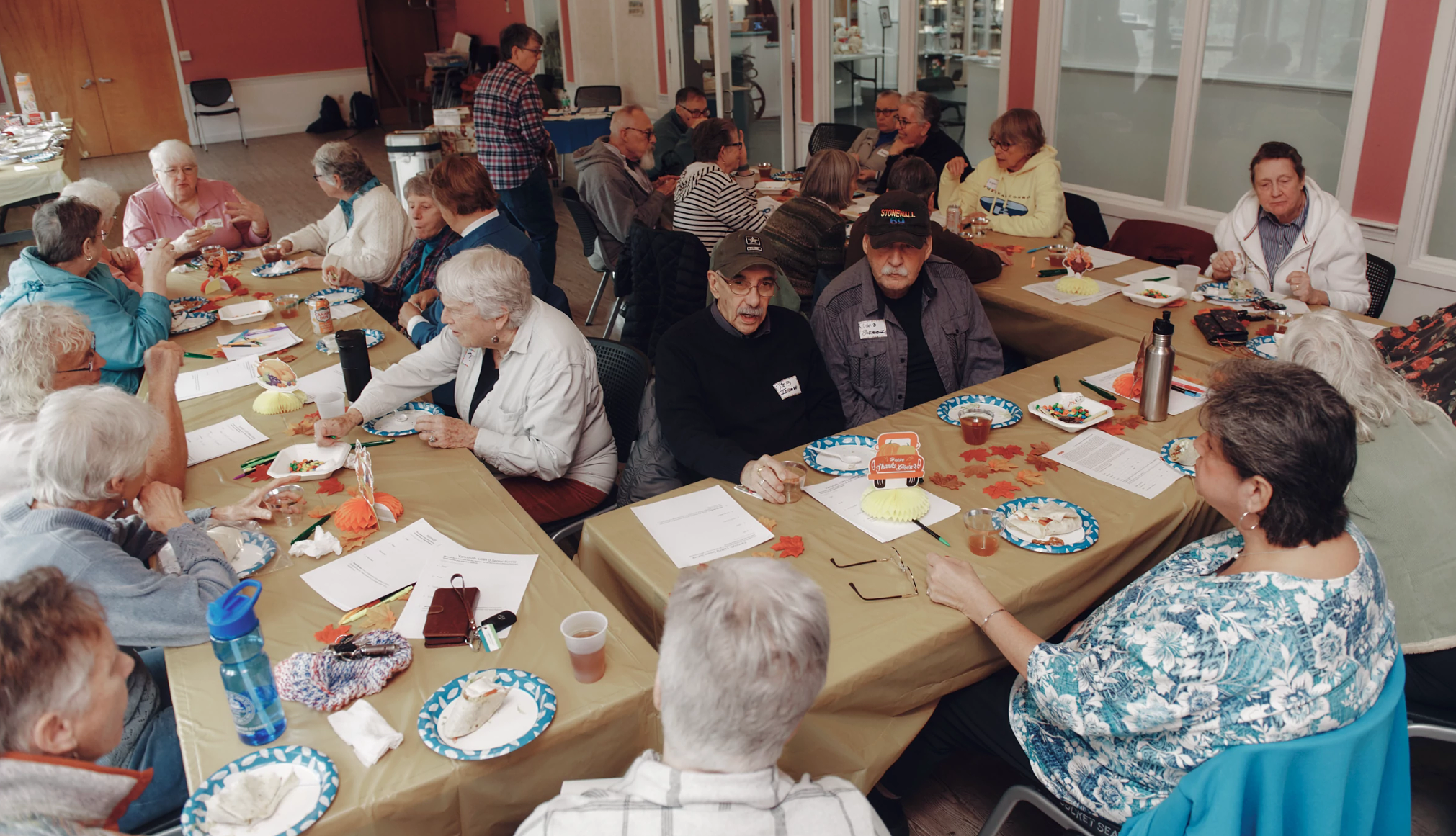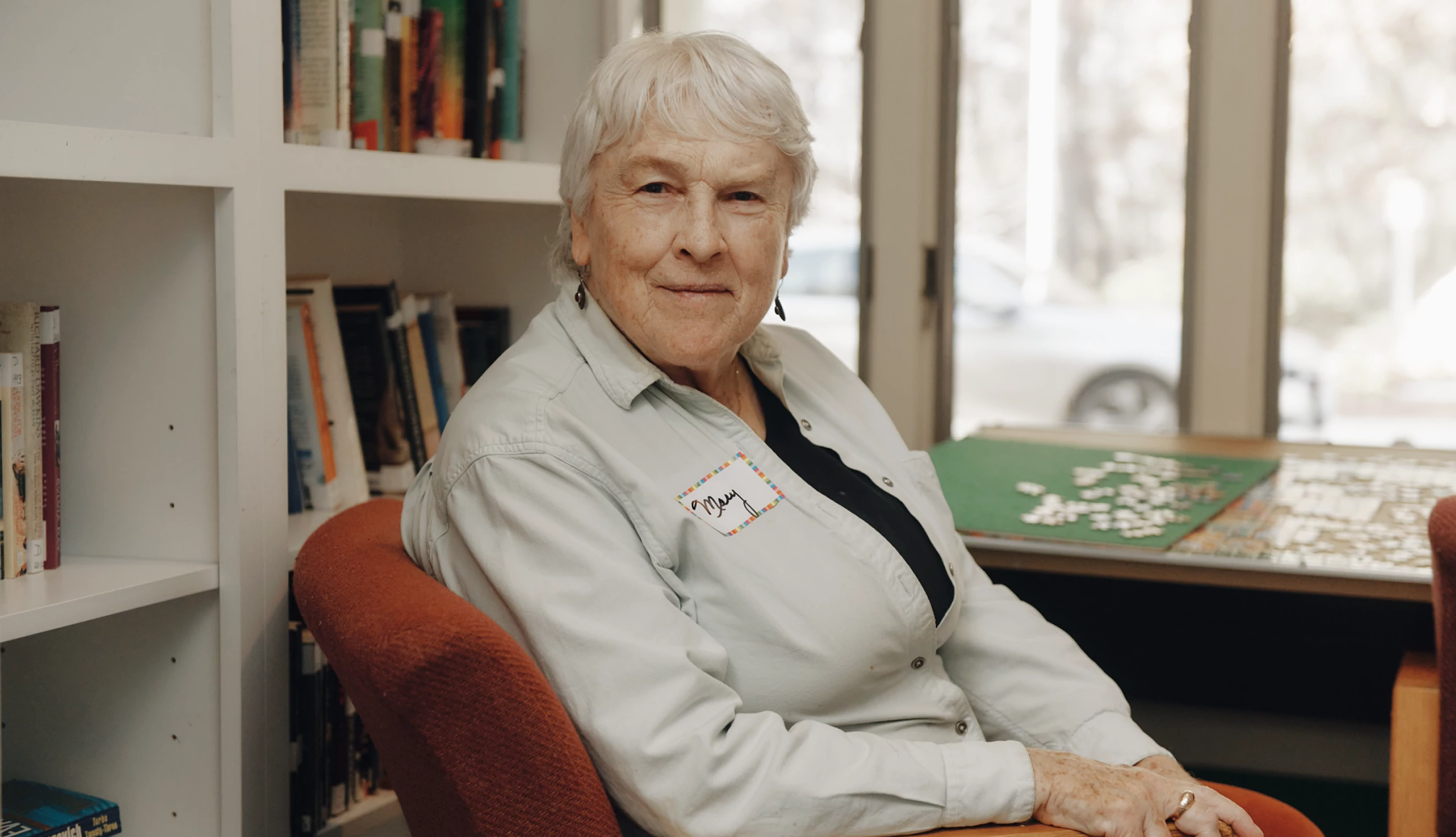AARP Hearing Center


LGBT+ older adults are finding new support in a traditional place: the senior center.
Theresa Latham of Yarmouth, Massachusetts, and her wife, Cheryll Scarangella, attend monthly meetings of an LGBTQ+ social group at the Yarmouth Senior Center that attracts people from several towns.
“They understand what you’re thinking, what you’re feeling,” says Latham, 65. “And I do think that there are a lot of older gay people who, maybe they’re not out to people, or they still don’t feel comfortable. But I think that having a place like that, that’s a safe space, that you can talk and meet people who are like you, I think that’s great.”
Whether people identify as LGBTQ+ varies by age, according to polls. In the United States, about 5 percent of Gen Xers (born 1965-1980), 3 percent of boomers (1946-1964) and 1.8 percent of the silent generation (born in 1945 or before) identify as lesbian, gay, bisexual or transgender, according to a 2024 Gallup telephone poll. Compared with older adults who do not identify as LGBTQ+, the research finds they are more likely to live alone or be single, be financially insecure and struggle with physical or mental health. Members of the LGBTQ+ community also are less likely to have children who might help care for them as they age.
To that end, senior and community centers are recognizing that these older adults want social services and social programs in a space that feels safe and welcoming. Now some traditional centers as well as centers specifically founded to serve LGBTQ+ clients, offer older adult programming, either on their own or in collaboration with other organizations.
“People are living longer; they’re living in the community. There’s more diversity in our communities,” says Dianne Stone, associate director of community partnerships and network activation for the National Council on Aging. “There’s populations that were hidden before, like the LGBTQ community, and now there’s just this visibility, and there’s an expectation and a willingness for senior centers to serve everybody.”
Mary Nicolini, 76, drives about 20 miles from her home in Eastham, Massachusetts, to the monthly get-togethers in Yarmouth and has also joined a new LGBTQ+ group sponsored by the Eastham Senior Center. Her connection with the Yarmouth center originated after her wife died, and Nicolini felt more comfortable in LGBTQ+ bereavement groups, including two offered at the Yarmouth center. For one thing, she didn’t have to keep explaining that the person who died was her wife, not her “friend.”


“It’s kind of family. No one’s going to send you away. And there’s a relaxation in that,” Nicolini says. “So, I don’t have to explain myself.”
Some LGBTQ+ programs are offered through centers and organizations that specifically focus on LGBTQ+ older adults, such as SAGE, based in New York City. SAGE not only runs its own centers and support programs for housing, meals, legal and financial issues, and health and wellness; it also offers training and help with LGBTQ+ programming for senior centers around the country. Some LGBTQ+ programs are initiated by senior center staff, while others, like Yarmouth, are organized by community members but based at the senior center. LGBTQ+ programming at the Madison (Wisconsin) Senior Center began as a collaboration with the local OutReach LGBTQ+ Community Center. And some, like those run by the nonprofit OutstandingLife, are virtual and can be accessed by anyone.
At some centers, LGBTQ+ programming has been a way for people to discover other activities at the center.









































































More From AARP
Are LGTBQ-Friendly Retirement Communities on the Rise?
Some see growing market for ‘affinity housing’ optionsMy Partner and I Speak Different Love Languages
He shows his love through physical touch. She wants to chat. Can they meet in the middle?
LGBTQ+ Geriatrician on Aging with Pride
Rosanne Leipzig has spent a lifetime focusing on aging and individualized care